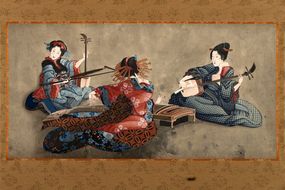From 6 April to 29 September 2024
Marco Polo (1254-1324) is certainly the most illustrious medieval traveler, and not only that. Before and after him others undertook successful journeys to the East. But Marco Polo, by virtue of his extraordinary work Il Milione, is undoubtedly the most famous and well-known character who traveled from West to East and left an extensive and documented narrative. The Venetian Marco Polo not only described much of Asia in an overall reliable manner, but also assumed the role of supreme interpreter and representative of the international mercantile nature of his land: Venice.
It can in fact be stated that the fame and glory of the Serenissima as the commercial capital of the West was built and disseminated precisely thanks to this adventurous and extraordinary son of his, whose name, certainly no coincidence, could only be that of the holy evangelist patron of the city, whose remains were also brought from the East, that time the nearest East. Celebrating Marco Polo and his itinerary 700 years after his death is an important opportunity to talk about his incomparable and unparalleled life and his knowledge ["so that we could know the things that are for the world..."] of those lands and populations distant, but also to understand what the relationships between these different worlds are today and how the "Silk Roads" have not lost their importance and relevance. The exhibition will be divided into different sections.
Starting from the illustration of the Venetian city and mercantile reality in the first half of the fourteenth century and the role of travel in Venetian commercial culture before and after the Polos' experience: cartography - not only Venetian - for example; and how much the stories and itineraries of the merchants influenced and determined this science. On their journeys, the Polos cross kingdoms and political and military potentates organized in different ways and cultural, artistic and religious worlds that differ from each other. All this in a historical moment in which Asia is more or less entirely under the control of various related Mongol dynasties. It is the unrepeatable age later referred to as the era of the "pax mongolica", which allowed safe travel along roads and regions that were little known until then.

Piazza San Marco, 1, Venice, Italy
Opening hours
| opens - closes | last entry | |
| monday | 09:00 - 19:00 | |
| tuesday | 09:00 - 19:00 | |
| wednesday | 09:00 - 19:00 | |
| thursday | 09:00 - 19:00 | |
| friday | 09:00 - 19:00 | |
| saturday | 09:00 - 19:00 | |
| sunday | 09:00 - 19:00 |

From 16 May to 16 November 2025
Muses and Heroines

Edoardo Chiossone Museum of Oriental Art, Genoa

Artsupp Card: museum + exhibitions 3.00 €